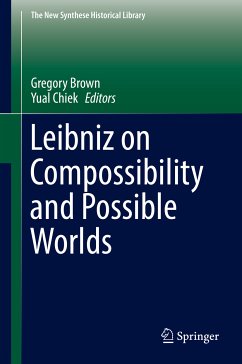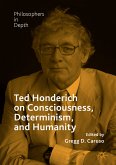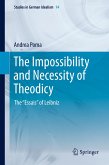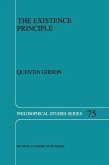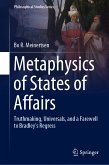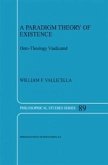This volume brings together a number of original articles by leading Leibniz scholars to address the meaning and significance of Leibniz's notions of compossibility and possible worlds. In order to avoid the conclusion that everything that exists is necessary, or that all possibles are actual, as Spinoza held, Leibniz argued that not all possible substances are compossible, that is, capable of coexisting. In Leibniz's view, the compossibility relation divides all possible substances into disjoint sets, each of which constitutes a possible world, or a way that God might have created things. For Leibniz, then, it is the compossibility relation that individuates possible worlds; and possible worlds form the objects of God's choice, from among which he chooses the best for creation. Thus the notions of compossibility and possible worlds are of major significance for Leibniz's metaphysics, his theodicy, and, ultimately, for his ethics.
Given the fact, however, that none of the approaches to understanding Leibniz's notions of compossibility and possible words suggested to date have gained universal acceptance, the goal of this book is to gather a body of new papers that explore ways of either refining previous interpretations in light of the objections that have been raised against them, or ways of framing new interpretations that will contribute to a fresh understanding of these key notions in Leibniz's thought.
Given the fact, however, that none of the approaches to understanding Leibniz's notions of compossibility and possible words suggested to date have gained universal acceptance, the goal of this book is to gather a body of new papers that explore ways of either refining previous interpretations in light of the objections that have been raised against them, or ways of framing new interpretations that will contribute to a fresh understanding of these key notions in Leibniz's thought.
Dieser Download kann aus rechtlichen Gründen nur mit Rechnungsadresse in A, B, BG, CY, CZ, D, DK, EW, E, FIN, F, GR, HR, H, IRL, I, LT, L, LR, M, NL, PL, P, R, S, SLO, SK ausgeliefert werden.
"This collection brings together nine essays addressing the problem of compossibility in Leibniz's system of thought. ... The collection opens with an excellent introduction to the terrain, reviews established approaches to the problem, and will be extremely helpful to both those new to, and those familiar with, Leibniz. ... This collection is an essential read for anyone interested in Leibniz's metaphysics of possible worlds and compossibility." (Jacob Mills, Journal of the History of Philosophy, Vol. 55 (4), October, 2017)

